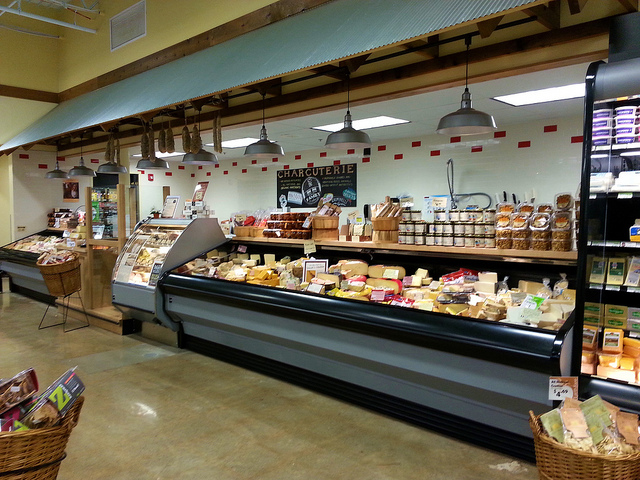Move over, Silicon Valley: food startups are poised to disrupt the startup ecosystem. Here’s why.
The silicon part of Silicon Valley is quickly being replaced by something a little squishier: food. New food startups with millions of dollars in funding are attracting a new type of young professional, hungry to build a better food system. With more than 80,000 food companies coexisting and thousands of new ones starting every year, the person handing out samples in your San Francisco grocery store just might be the founder of those vegan, gluten-free, raw superfood snacks.
I believe there are five key points that indicate that 2015 will be the year this trend moves beyond the coasts and food startups receive broader recognition.
- Folks want to fund food. 2014 was a record-breaking year for the food and agriculture industry, with $2.36 billion raised across 264 financing deals. The versatility of food startups draws in venture capitalists from every interest, as a food startup can tout a tangible, attractive product, a new take on health and fitness, or a sustainability profile that tackles large-scale problems. When it comes to food, there’s something for everyone.
- Food matters. The truth is, what we eat is more critical to the world than what we download. A well-thought through food company can shift an entire supply chain (as in the case of Krave Jerky turning grass-fed, sustainable jerky into a must-have for everyone from the Whole Foodies to the gas station truckers). The food system has a huge reach and impact, and investors can hardly help but love the missions we provide. Now attracting some of the best-educated and most creative entrepreneurs, food companies are future-focused companies. And a better future is always worth investing in.
- Food is predictable, yet flexible. While getting a food company up and running was one of the most bootstrapping and exhausting activities I could have taken on, I am constantly reassured by the nature of my business. I know that if I do well, my model is replicable and scalable, yet flexible enough to meet consumers’ rapidly changing tastes and demands for food system change.
- There is fortune in food. While small artisanal companies are finding ways to make food sexy, the big guys’ fistfuls of cash speak for themselves. Recent acquisitions of major food companies show that there is a fortunate to be made in the food world. The famous Heinz and Kraft merger will create the world’s fifth-largest food company, with $28 billion in sales. Smucker’s acquisition of Big Heart Pet Brand will make Smucker No. 1 in the U.S. for peanut butter, fruit spreads, pet snacks and at-home retail coffee (the coffee is valued at $8.4 billion alone). Food is something everyone needs.
- Even a techie’s gotta eat. Google has built entrepreneurial food programs as part of employee wellness efforts, and Food+Tech Connect is nationally recognized as one of the most successful collaborative efforts of its kind. Technology gurus are meeting foodies to create more sustainable, animal-free and fortified foods that are gaining popularity (Soylent, Beyond Meat), while foodies are using technology to improve logistics and increase convenience for consumers (Good Eggs, Farmigo). In today’s startups, the two fields overlap more often than not. Techies know food is here to stay, and tapping into technology has proven profitable for the increasingly demanding food scene.
Perhaps the best part of food startups is that their innovation benefits all of us. You don’t need an iPhone 6 to walk into a grocery store and pick up an innovative, sustainable food product. The rapid increase in the amount of funding, pitch events and acquisitions in food point to a clear frenzy at the top for food startups.
But every food startup starts somewhere, and most often that start is in your local grocery store. Next time you see someone passing out samples, take the time to talk with him or her. You might be chatting with the next big thing.
The Young Entrepreneur Council (YEC) is an invite-only organization comprised of the world’s most promising young entrepreneurs. In partnership with Citi, YEC recently launched StartupCollective, a free virtual mentorship program that helps millions of entrepreneurs start and grow businesses.
Image credit: CC by Nicholas Eckhart




